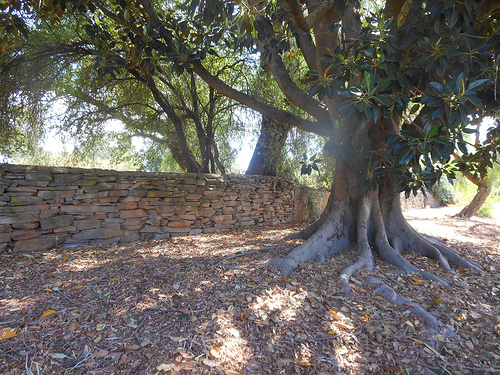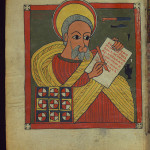We run our website the way we wished the whole internet worked: we provide high quality original content with no ads. We are funded solely by your direct support. Please consider supporting this project.

Why Did Jesus Curse the Fig Tree?
One of the strangest episodes recorded in the Gospels is Jesus cursing a fig tree because he was hungry and it didn’t have any figs (Mk 11:12-14; Mt 21:18-19). It’s the only destructive miracle found in the New Testament. What’s particularly puzzling is that Mark tells us the reason the fig tree had no figs was because it wasn’t the season for figs.
On the surface, it might look as if Jesus simply lost his temper and used his supernatural power to punish a poor tree whose only crime was being in the wrong place during the wrong season. Most commentators argue that the fig tree represented Israel and Jesus was symbolically warning that judgment was coming if it didn’t start bearing fruit. This is probably correct, but I don’t think it addresses the most profound significance of this event. If we understand this episode against the background of the apocalyptic thought of Jesus’ day, we can discern another layer of meaning.
Famine was widely believed to be the work of the devil in apocalyptic thought, and barren or infected fig trees became symbols of this fact (Mk 13:8; Rom. 8:35). What is more, many Jews of this time believed the Messiah would free nature from Satan’s grip, thus putting an end to things like famines. When we interpret Jesus’ cursing of the fig tree in this light, it seems evident he was proclaiming that he was the Messiah by “cursing the curse.” And in doing so, he symbolized that he was the long awaited one who would “destroy the devil’s work” (I Jn 3:8) and restore creation.
More generally, Jesus was thus demonstrating that, where God reigns, the demonic corruption of nature will be in the process of being overcome. And he was showing that, when the Kingdom is fully manifested, the whole cosmos will be delivered from the oppressive Powers. There will then be no more famine, droughts or hunger. Nature shall produce abundant vegetation and fruit, as it was always intended to do.
Something similar could be said of other “natural miracles” performed by Jesus. When Jesus miraculously fed the multitudes (Mk 6:30-44; 8:1-10) and brought about a miraculous catch of fish (Lk 5:3-10; cf. Jn 21:1-8), we can understand him to be enacting the truth that when the future Kingdom comes, humans will be reinstated in their proper place of authority, exercising dominion over nature. Consequently, there will no longer be any shortages of food.
So too, when Jesus raised people from the dead, and when he himself was raised from the dead, he was revolting against the reign of death and the one who holds the power of death (Heb. 2:14). And in doing this, he was pointing to a time when “the last enemy” would be utterly destroyed and death would be no more (I Cor. 15:26.)
So, Jesus cursing of the fig tree wasn’t the result of a temper tantrum. Jesus was cursing the curse and revealing himself to be the long awaited Messiah who would eventually free creation from the bondage of Satan.
Image by Royston Rascals via Flickr.
Related Reading

Myth Become History
The Gospel of John tells of the coming of Jesus in an unusual way. John writes: In the beginning the Word already existed. The Word was with God, and the Word was God. Everything came into existence through him. Not one thing that exists was made without him. He was the source of life, and…

Is God Immutable? Part I
For a number of reasons, Plato believed that something changes only to become better or to become worse (Rep. II). Since a perfect being can’t be improved or diminished, he argued, God must be completely unchanging, As this idea was developed over time, Plato’s followers concluded that not only must God’s character be unchanging, but…

Podcast: Can We Really Have a Personal Relationship with Jesus?
It’s all about parts and wholes in this rip-roaring journey through the historical development of certain pietistic trends as Greg introduces his listeners to Depeche Mode Theology. http://traffic.libsyn.com/askgregboyd/Episode_0228.mp3

Are the Gospels Historical Fiction?
Some scholars today argue that the stories recorded in the Gospels are actually intentional fabrication. In essence, they argue that Mark took Paul’s theology and robed the story of Jesus in a fictitious historical narrative. The other Gospels followed suit. The argument is clever and removes the difficulty of explaining how a legend of a…

Conflicting Pictures of God
In my ongoing reflections on the ReKnew Manifesto, I’ve spent the last two posts (here and here) arguing that nothing is more important in our life than our mental images of God. If so, then the all-important question is: what authority do we trust to tell us what God is like? To most evangelicals, the…
